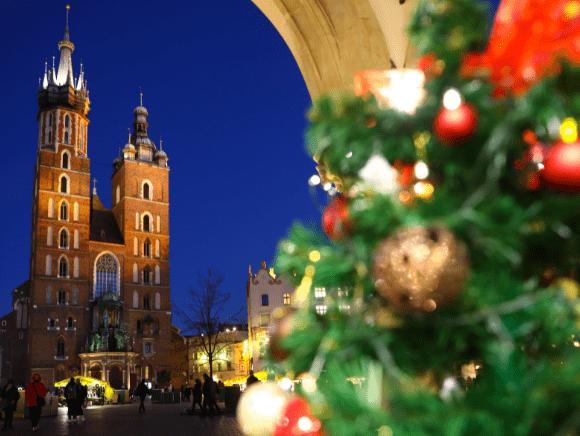Suffice it to say, 2021 has been a year of many trials and tribulations. A worldwide pandemic, shortages of goods, and the rising cost of food and fuel – put it all together, and even the least faithful among us may be wondering whether they should crack open Grandma’s Bible and read about the Four Horsemen of the Apocalypse. Before we wander down that bunny trail, it is worth noting the status of global Christianity this Advent season and ask the question: Is Christianity making a comeback this Christmas, or not?
 Good News and Bad News
Good News and Bad News
The best statistical estimates agree the worldwide population of Christians stands at 2.5 billion people. Several trends spotted by the International Bulletin of Mission Research give believers reason for hope. First off, they say, “The world is becoming more religious, not less” and that “Christianity is growing” at a rate of “1.18% per year.” “This is faster than the growth of atheism (0.22%).” That’s the good news. The bad news is that this growth rate is slower than for those who follow Islam, Hinduism, and Sikhism.
The equator appears to be the dividing line for Christian growth. The number of people who call themselves followers of Jesus is waning in the northern hemisphere but thriving south of the equator. For example, most conversions occur in Africa, followed by Asia, and Latin America, while the number of Christians is declining in North America and Europe.
According to the Center for the Study of Global Christianity at Gordon Conwell Theological Seminary, the percentage of Christians in relation to the world population declined 2.2% between 1900 and 2021. However, they predict this trend will reverse, and the numbers will begin to rise again with a slight increase of .2% by 2025. Then the real uptick will take place by 2050 when they expect Christianity to grow another 2.5%.
 In the Good Old USA
In the Good Old USA
In the U.S., traditional Christian denominations are losing ground as “fewer people identify with an established religious tradition every year,” according to Christianity Today. The most significant losses come from the so-called mainline denominations, which have dropped a staggering 40% in the last ten years. Further, the magazine notes, “The ranks of religiously unaffiliated, also called the nones, have grown from just about 5 percent in the early 1970s to at least 30 percent in 2020.”
Evangelicals, however, should not boast as their numbers are also in a downward trajectory, but not nearly as steep a decline as the church establishment. “In 1993, evangelicals hit their peak in the data at just under 30 percent and have since gone into a slow and steady decline over time,” reports CT. There is no doubt establishment denominations have a severe retention problem, but any way you cut it, both mainline and evangelical churches are hemorrhaging congregants. Surveys conducted this year tell the story in detail.
According to a 2021 Gallup poll conducted in the U.S., “membership in houses of worship continued to decline… dropping below 50% for the first time” in 80 years. As a reference point, in 1937, 73% of Americans said they were members of one church or another. Gallup asserts that the drop in those affiliated with a house of worship is closely tied to age. Of those born before 1946, 66% belong to a church, but things go south from there, with baby boomers clocking in with a church membership rate of 58%, then 50% for Generation X, and a paltry 36% of millennials. Thus far, Generation Z is demonstrating similar church affiliation rates as millennials.
No Surprise Here
For Christians, these numbers will not come as a shock to the system. Many maintain the lack of Christian believers in the U.S. writ large – and the dearth of those who claim a specific church affiliation – can easily be identified merely by watching the moral and cultural decay of the United States. So, while we can safely say Christianity is not making a comeback in America this Christmas, we need not fear the future for the essential message of Jesus, the Christ, is that when we believe in Him, we are assured of life everlasting.
And that, my friends, is something to celebrate this Christmas.
~ Read more from Leesa K. Donner.




